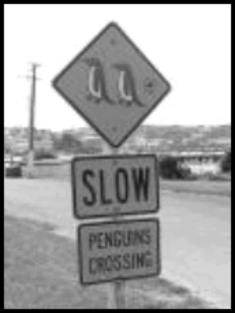Is a Wheelchair

The Automobile
Is a WheelchairPEDRO REYES: One new group therapy happened near Tlatelolco, in a market in Mexico City where punks, goths, headbangers and other rock-related tribes meet every Saturday to trade records, all dressed up for the occasion. I fabricated a series of sculptures in the shape of electric guitars, then I had a sound system and a color background that I changed according to the style of the volunteer-performer. They were able to choose the song and guitar most tuned with their style.The principle is similar to karaoke, but here you perform by playing the prop guitar and closing with the cathartic ritual of smashing it. I consider this "group therapy" as an answer to the need for spaces of violence in our lives. Violence can become an exercise of style; violence can be a space for creativity. The cathartic ritual of smashing a rock guitar is also part of an universal language.BOMB: So these therapies are triggers for awareness of what is lacking in our daily lives?PEDRO REYES: They deal with the concept of prosthesis and evolution. Every technological device signifies evolution, but we always forget that the evolution of one element involves the atrophy of another. Nicanor Parra said this in a beautiful way: "The automobile is a wheelchair."
If we think of it, all human discoveries and new technologies bring an atrophy. The chemicals that extend the shelf live of our food cause cancer, the typewriter rendered calligraphy obsolete and the radio made people stop singing.To remedy these atrophies there's often a new device invented, a prosthesis. If radio made collective singing obsolete, then there came karaoke. That's why group therapy where the teens smash guitars is meant to restore a place for violence. And in the dreams project, the participants had no dream because of their medications used video to have a dream life again.
I am not against progress. I just feel that we lose sight of the atrophy involved in every evolution, and that new atrophies pull evolution in new directions.
BOMB: In which direction do you think these prosthetic developments will take us?PEDRO REYES: Inevitably the question is, Who will survive? And the answer is, Everyone will survive. Everything will survive. This complex task requires a permaculture of culture.
Permaculture is a blend of permanence and agriculture. The idea is to sustain permanence and agriculture. The idea is to sustain life in a feedback loop of sources and wastes. If evolutions bring atrophies and atrophies require prosthesis, use the prosthesis but keep the original sources in reach too ...
It is like T. S. Eliot's quote that says, "Where is the wisdom we have lost in knowledge? Where is the knowledge we have lost in information." We can link this again with the theme of modernity: we look back at it mainly as a set of finished solutions. Instead you could see it as a myriad of tools that have fallen into disuse that are waiting to be used again.
--- Interview with Artist Pedro Reyes
©Bomb Magazine
Winter 2005 - 2006